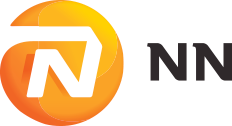Amir Arooni is Chief Information Officer (CIO) at NN Group since early 2016. In his recent interview in Management Scope he elaborates on the challenges he has to tackle as a CIO. ‘Digital transition is only partly about technology and mostly about leadership, giving trust and taking responsibility.’ Please find below a summary of his interview.
‘A CIO always looks at three things: people, processes and technology. Thirty years in IT have convinced me that, however great the technology and superior the processes, it is the people that determine success, and particularly people with the right mindset. A good team requires expertise as well as human leadership’, said Arooni. ‘Success happens when these two aspects are well-balanced in an individual. All team members should have a strong ability to work together, to want to help each other to be successful instead of going for personal achievement. As managers, we need to keep a very close eye on the effects of what we’re doing. Many managers don’t give this much attention. But if you’re truly interested in people, you ask open questions, and are bound to elicit lots of information. I think that’s one of my most important jobs: to create an environment in which people trust each other and are keen to work together. To achieve that, it is crucial to have an excellent feedback loop to make sure you are on the right track with your own behaviour.’
Learning and unlearning
NN has a strategic focus on innovation. Arooni: ‘We want to constantly improve the ways we serve our customers and help them gain insight into their financial futures. Technology plays a key role here’, elaborates Arooni. ‘Digital transformation is another focus area, which also affects our own IT organisation. People often call this agile transformation, but I prefer DevOps transformation, implying close collaboration between IT development and IT operations. Previously, we used to work on the basis of people, jobs and tasks. Job descriptions came with objectives, and we were assessed and rewarded based on those objectives. Today, we’re right in the middle of a transition from “people, jobs and tasks”, to “teams, responsibilities and learning”. Experimenting and learning take centre stage, the basic principles informing DevOps. Over the past 30 years, we’ve trained employees to focus on one job and one task; today we want people to do multiple tasks and jobs, and to do them as a team. Our engineers are clever enough to learn new stuff, but we all face the same challenge: unlearning the idea that something is ‘our thing’. One of the hardest things to do is to broaden our abilities and to stop thinking in silos. Is data security a department that tests software at the end of the process? Or is this the responsibility of the entire development team, so that security is built in – security by design?’
Keep experimenting
‘At NN, we’re laying digital foundations in the shape of portals and apps for employers, employees and distribution channels. It’s a huge challenge to combine legacy – familiar to many companies – and innovation. Not everything’s immediately visible, but we draw on a lot of new technology: robotics, artificial intelligence, blockchain and machine learning’, said Arooni. ‘In IT processes, this increasingly means hitting a button: automated testing, for instance, or configuring software. NN is one of the first financial services companies in the world to choose the public cloud solution, simply because of the benefits in terms of speed, security and flexibility. Cloud providers spend a lot of time and money on security, and we can rightly ask ourselves if small- and medium-sized organisations have the funds to do so. All of NN’s applications in the Netherlands should be in the cloud by early next year. Some we will phase out, others we’ll migrate unchanged, and yet others we’ll integrate into new solutions. The secret of this successful migration is that we have teams with the right knowledge of technology, like Amazon Web Services, Microsoft’s Azure and IBM’S Bluemix. We are we bound to see an increase in the number of new technologies going forward. It’s essential that we build an organisation capable of handling these developments. We have to keep experimenting, keep learning. That’s my goal: a learning organisation in everything it does.’

